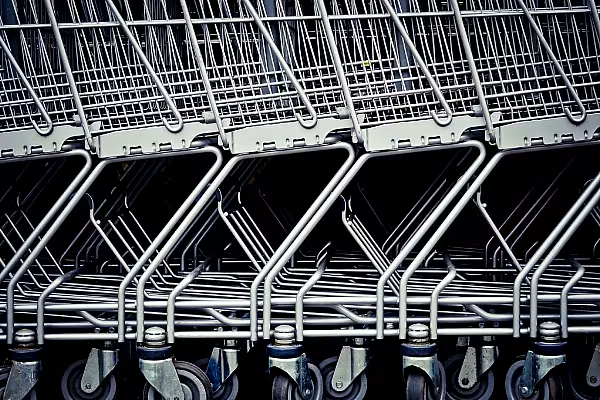Soaring food prices pushed annual inflation in British shops to its highest in at least 18 years in March, industry data has shown.
The British Retail Consortium said overall shop price inflation rose to 8.9% from 8.4% in February, the largest increase since the British Retail Consortium's (BRC) records started in 2005.
Prices in the BRC's food category were 15% higher than a year ago, chiming with official inflation data last week that showed food and drink prices rose in February at the fastest annual rate since 1977.
Read More: Record Food Inflation Figures Putting Pressure on UK Households: McKinsey
'Yet To Peak'
"Shop price inflation has yet to peak," said BRC chief executive Helen Dickinson, who cited the rising cost of sugar as a major driver of higher food prices in March.
Sugar prices have been hit by falling production, rising energy prices and a pesticide ban in Britain to protect bees.
"Fruit and vegetable prices also rose as poor harvests in Europe and North Africa worsened availability, and imports became more expensive due to the weakening pound," Dickinson said.
Product Shortage
British supermarkets have grappled with a shortage of key salad staples, particularly tomatoes, cucumbers and peppers after cold weather in growing areas.
The country's annual consumer price inflation - which includes services and other non-shop goods such as energy - rose unexpectedly to 10.4% in February. It hit a 41-year high of 11.1% in October.
Read More: Britain, Ireland Facing Tomato Shortage After Overseas Harvests Disrupted
News by Reuters, edited by ESM – your source for the latest retail news. Click subscribe to sign up to ESM: European Supermarket Magazine.










